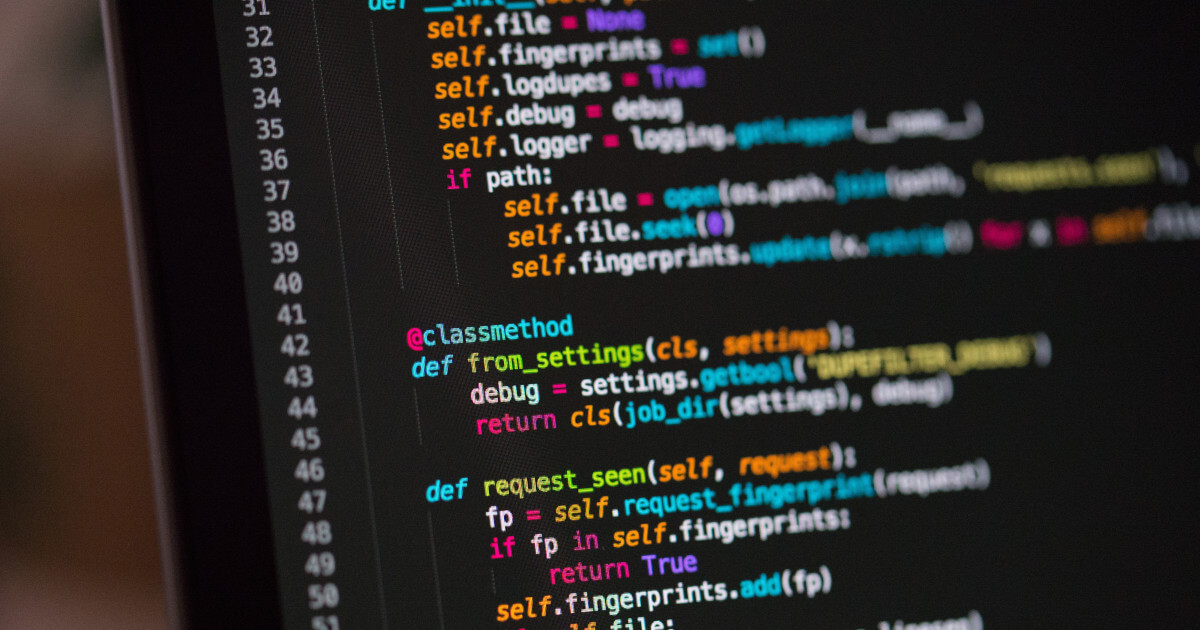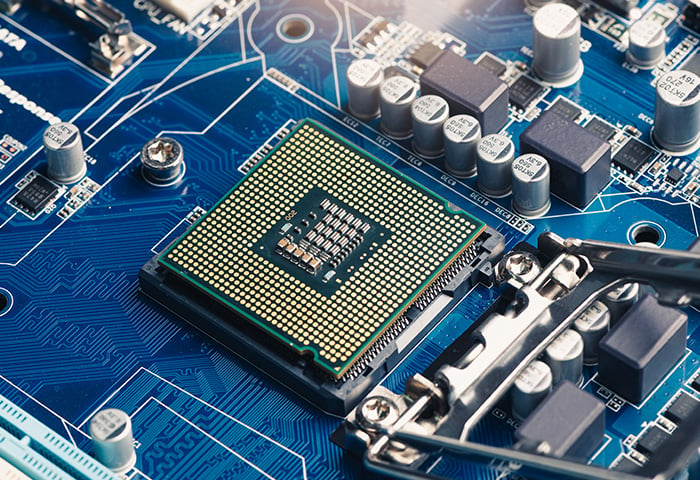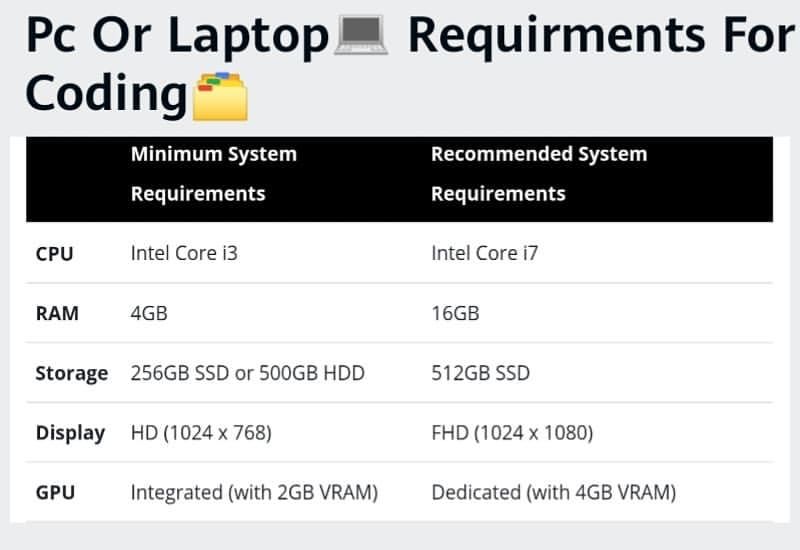Introduction: The Need for Affordable Programming Laptops
When it comes to choosing the best laptops for programming, many aspiring coders and seasoned developers alike find themselves torn between the allure of high-end, feature-packed machines and the reality of budget constraints. After all, not everyone has $10,000 lying around to splurge on the latest cutting-edge technology. Yet, coding is a discipline that requires a reliable machine—one that can handle the rigors of software development without freezing up at every complex operation.
In this guide, we’ll embark on a journey to discover the best laptops for programming that won’t break the bank. Whether you’re just dipping your toes into the world of coding or you’re a seasoned developer looking for a secondary machine, this article will provide you with the insights needed to make a smart purchase. By the end, you’ll not only have a clear understanding of what makes a laptop great for coding but also a list of the top picks for 2024, all under $1 million dollars. Just kidding—$1,000 is more like it!
Best Laptops for Programming on a Budget
So, what exactly makes a laptop the best for programming? Is it the raw processing power, the amount of RAM, or perhaps the type of storage? The answer is a mix of all these factors, balanced against your budget. Here’s a sneak peek at what you should be looking for when hunting for the best laptops for programming on a budget.
What is the Best Budget Laptop for Learning Programming?
If you’re new to programming, one of the first questions you might find yourself asking is: “What is the best budget laptop for learning programming?” This is a crucial consideration because getting started in programming doesn’t necessarily require a top-of-the-line, expensive machine. In fact, one of the best things about entering the world of coding is that you can do so without needing a laptop with a $1 million dollar price tag.
Sure, those high-end laptops might come packed with all the latest bells and whistles, but they are far from necessary for someone who is just starting to learn the basics of coding. In reality, finding the best laptops for programming on a budget is more about understanding what you truly need and how to balance that with your available resources.
When searching for the best laptops for programming, especially as a beginner, it’s essential to focus on finding a machine that offers the right mix of performance, reliability, and cost-effectiveness. You don’t want to overspend on features you won’t fully utilize, but at the same time, you want to ensure that your laptop is powerful enough to handle the demands of learning to code. For beginners, the best laptops for programming are those that strike a perfect balance between performance and price. This balance ensures that you won’t be frustrated by slow performance or limited capabilities as you delve deeper into more complex coding tasks.
Specifically, laptops equipped with an Intel Core i5 or AMD Ryzen 5 processor are often considered among the best laptops for programming for beginners. These processors offer a good amount of power without the high cost associated with more advanced models like the Intel Core i7 or AMD Ryzen 7. In addition to a solid processor, having at least 8GB of RAM is crucial. RAM, or random access memory, is what allows your computer to handle multiple tasks simultaneously without slowing down. For most coding tasks, 8GB of RAM will provide ample power, ensuring smooth performance even when you’re running code editors, compilers, and other development tools all at once.
Another key consideration when selecting one of the best laptops for programming on a budget is storage. An SSD (Solid State Drive) is preferred over an HDD (Hard Disk Drive) because of its faster read and write speeds, which significantly improve your laptop’s overall responsiveness. For beginners, a 256GB SSD should suffice for most coding tasks, providing enough storage for your operating system, development tools, and a few projects without feeling cramped. However, if you plan on working with larger files or running virtual machines, you might want to consider a laptop with a 512GB SSD to ensure you have enough space.
Moreover, the best laptops for programming should have a decent display and keyboard, as these are the interfaces through which you’ll interact with your code. A Full HD display (1920×1080 resolution) is recommended for clarity and ease of reading, which is especially important during long coding sessions. A comfortable keyboard with good key travel and feedback is also essential since you’ll be typing a lot. These elements might seem minor, but they can make a significant difference in your overall coding experience.
Ultimately, finding the best laptops for programming doesn’t mean you need to break the bank. By focusing on what truly matters—processor power, RAM, storage, and a comfortable interface—you can find a budget-friendly laptop that will serve you well as you embark on your programming journey. Whether you’re aiming to learn web development, app development, or data science, starting with a laptop that meets these criteria will set you on the right path without unnecessary financial strain. Remember, the goal is to find a laptop that will allow you to learn and grow as a programmer, and with the right choice, you can do just that without needing to spend anywhere near $1 million dollars.
Which Laptop is Best for Coding and Programming?

Choosing the best laptop for coding and programming depends on your specific needs. Are you focusing on web development, mobile app development, or perhaps game development? Each of these fields has different demands.
For instance, web development can be done comfortably on most budget laptops, but game development may require a machine with a bit more graphical power. Therefore, when evaluating the best laptops for programming, consider the type of projects you’ll be working on. Laptops with at least an Intel Core i5 or AMD Ryzen 5, combined with 8GB of RAM, are a safe bet for most coding tasks.
Read Related posts by Muaz Ibn M.
- 10 Best AI Language Learning Apps to Boost Your Fluency Fast
- 10 ChatGPT Prompts to Transform Your Job Search | Expert Tips
- 10 Essential Skills for Ethical Hackers: 0 to 100
- 10 Powerful Visuals for Personal Growth and Success
- 3 Ways to Hack-Proof Your Life: The Ultimate Guide
How to Choose the Best Laptops for Programming
Selecting the right laptop for coding involves understanding several key components:
- Processor (CPU): The brain of your laptop, responsible for executing code. An Intel Core i5 or AMD Ryzen 5 is ideal for budget laptops. Higher-end processors, like the Intel Core i7 or AMD Ryzen 7, provide more power but at a higher cost.
- Memory (RAM): A critical factor in multitasking and running large projects. For most programming tasks, 8GB of RAM is sufficient, but if you’re working with large datasets or running multiple virtual machines, 16GB might be a better choice.
- Storage: SSDs (Solid State Drives) are preferred over HDDs (Hard Disk Drives) for their speed. A 256GB SSD is the minimum you should consider, though 512GB is more comfortable for storing larger projects.
- Graphics: Integrated graphics are usually enough for coding, but if you plan on doing game development or working with graphic-intensive applications, consider a laptop with a dedicated GPU.
- Operating System: Windows, macOS, and Linux all have their strengths. Choose based on your development environment preference.
Key Specifications to Consider in a Budget Programming Laptop
While it might be tempting to go for the cheapest option available, it’s crucial to ensure that the laptop you choose has the right specs to handle programming tasks efficiently. Here’s a quick rundown of what to look for:
- Processor: Aim for at least an Intel Core i5 or AMD Ryzen 5.
- RAM: 8GB is the minimum, with 16GB being ideal for more demanding tasks as it’s a best laptop for programming.
- Storage: A 256GB SSD at the least, though 512GB is recommended.
- Display: A Full HD (1920×1080) resolution is essential for a clear and comfortable coding experience.
- Battery Life: Look for a laptop that offers at least 6-8 hours of battery life, especially if you plan to code on the go.
Is 8GB RAM OK for Coding?
One of the most common questions when selecting the best laptops for programming is whether 8GB of RAM is sufficient. The short answer is yes, for most programming tasks, 8GB of RAM is adequate. However, if you’re working with very large projects or running multiple applications simultaneously, you might notice some lag.
For instance, if you’re working on Android development or using complex integrated development environments (IDEs) like Visual Studio with multiple plugins, you might find that 8GB starts to feel limiting. In these cases, upgrading to 16GB would provide a smoother experience.
How Much RAM is Required for Python?
Python is known for being relatively light on system resources, which is why it’s often the first language taught to beginners. However, the amount of RAM required can depend on what you’re doing with Python. Simple scripts and web development frameworks like Django or Flask will run perfectly fine on 8GB of RAM.
If you’re getting into data science, machine learning, or any Python application that handles large datasets, more RAM is beneficial. In these scenarios, 16GB of RAM would be more appropriate to ensure smooth performance.
Read Related posts by Muaz Ibn M.
- What is OSINT, or Open-Source Intelligence, and why is it the best?
- Types of Network Topologies Explained: Bus, Star, and Mesh
- The CIA Triad in Modern Cybersecurity
- 10 Essential Skills for Ethical Hackers: 0 to 100
- GPT-4 vs GPT-4o: Which is the better?
How Much RAM is Best for Laptop for Coding?

The amount of RAM you need in the best laptops for programming depends on your specific use case. For most coding tasks, 8GB is sufficient. However, if you’re working with resource-intensive applications or running virtual machines, 16GB of RAM will provide a noticeable performance boost. Developers working in environments like Android Studio or Visual Studio with multiple instances open at once will particularly benefit from the extra memory.
Do You Need an Expensive Laptop to Code?
Do you really need to spend $1 million dollars on a laptop to code? Of course not! Coding does not inherently require expensive hardware. While it’s true that high-end laptops offer better performance and build quality, many budget laptops are more than capable of handling programming tasks.
In fact, with a budget of around $1,000, you can find a laptop that will comfortably handle most coding activities, including web development, mobile app development, and even some game development. The key is to balance your needs with what you can afford, focusing on essential components like the CPU, RAM, and storage.
Is i3 Good for Programming?
The Intel Core i3 is often seen as the entry-level processor in Intel’s lineup, leading many to wonder if it’s sufficient for programming. The answer depends on what you plan to do. If you’re learning the basics of programming, an i3 processor can be adequate, especially if paired with 8GB of RAM and an SSD.
However, for more demanding tasks, such as running multiple IDEs, virtual machines, or compiling large codebases, the i3 might struggle. In such cases, it’s better to opt for an Intel Core i5 or higher to ensure a smoother experience.
Should I Buy i3 or i5?

If you’re torn between buying an Intel Core i3 or an i5, consider your programming needs. The i3 is suitable for light programming tasks and beginners, particularly if your budget is tight. However, if you can stretch your budget slightly, the i5 is a better investment in the long run, offering more power for multitasking and running complex programs.
Can I Do Python in an i3 Processor?
Yes, you can comfortably run Python on an Intel Core i3 processor. Python’s simplicity and efficiency mean that it doesn’t require a high-end processor to run basic scripts and even some moderate-sized projects. Just ensure that your laptop has at least 8GB of RAM and an SSD for faster data access and program execution.
Is an i5 Laptop Good for Programming?
The Intel Core i5 is often considered the sweet spot for programming laptops. It offers a good balance of performance and affordability, making it an excellent choice for most developers. Whether you’re working on web development, mobile app development, or even light game development, an i5 processor should meet your needs without breaking the bank.
Which is Better for Programming, i5 or i7?
The choice between an Intel Core i5 and i7 for programming depends on your budget and the intensity of your tasks. The i7 offers more cores and threads, making it better suited for multitasking and resource-intensive tasks like compiling large codebases or running multiple virtual machines.
However, the i5 is usually sufficient for most programming tasks, especially for beginners and intermediate developers. If you’re working with a limited budget, an i5 laptop is a smart choice, offering great performance without the higher price tag of an i7.
Is Core i5 Good for Programming?
Absolutely. The Core i5 is a great processor for programming. It provides enough power for most coding tasks, including web development, app development, and even some light game development. Its balanced performance and cost make it one of the best choices for developers who need a reliable machine that won’t cost a fortune.
Is Core i7 Good for Programming?
The Core i7 is an excellent choice for programmers who need extra power, particularly if you’re working with heavy-duty tasks like compiling large codebases, running complex simulations, or working with big data. The additional cores and threads of an i7 allow for smoother multitasking and faster processing times, which can significantly enhance productivity.
That said, an i7 does come at a higher price point, so if your tasks don’t require this extra power, an i5 may be a more cost-effective option.
Core I3 vs I5 vs I7; What are the best Laptops for Programming
When deciding between Intel Core i3, i5, and i7 processors for the best laptops for programming, it’s essential to understand how each fits different coding needs. The Intel Core i3 is an entry-level processor that can handle basic programming tasks and is suitable for beginners working with lightweight code editors and simpler projects.
However, if you’re looking for a more versatile and future-proof option, the Intel Core i5 offers a significant performance boost, making it ideal for multitasking, running more complex integrated development environments (IDEs), and handling larger codebases. For those engaged in more intensive programming tasks, such as running multiple virtual machines, compiling large projects, or diving into game development, the Intel Core i7 stands out with its superior processing power and ability to handle high-demand applications smoothly.
Ultimately, the i5 strikes a balance between cost and performance for most developers, while the i7 is the go-to choice for those needing top-tier performance in their programming work.
Table on Core I3 vs I5 vs I7; What are the best Laptops for Programming
| Feature | Intel Core i3 | Intel Core i5 | Intel Core i7 |
|---|---|---|---|
| Target User | Beginners, light programming | Intermediate developers, multitasking | Advanced developers, resource-intensive tasks |
| Performance | Basic performance, suitable for simple tasks | Balanced performance, handles most programming needs | High performance, ideal for heavy-duty tasks |
| Cores/Threads | 2-4 cores / 4 threads | 4-6 cores / 8-12 threads | 6-8 cores / 12-16 threads |
| Clock Speed | 2.0 – 3.6 GHz | 2.5 – 4.3 GHz | 2.8 – 4.8 GHz |
| Multitasking Capability | Limited, best for single tasks | Good, can handle multiple IDEs, VMs | Excellent, ideal for heavy multitasking |
| Graphics | Integrated, basic | Integrated, good | Integrated or dedicated, high-quality |
| Power Efficiency | High (good battery life) | Balanced (good performance vs. battery life) | Lower (higher power consumption for peak performance) |
| Price Range | Affordable, budget-friendly | Mid-range, cost-effective | Higher-end, premium pricing |
| Use Case | Basic coding, web development, learning | Web and app development, moderate multitasking | Game development, data science, large project compiling |
Which Generation Laptop is Best for Coding?
When it comes to choosing the best laptops for programming, the generation of the processor plays a crucial role in determining how well your laptop will perform under the demands of modern coding tasks. Processor generations mark significant improvements in technology, including enhancements in speed, power efficiency, thermal management, and integrated graphics performance. These advancements are essential for programming, as they directly influence your laptop’s ability to handle complex coding environments, compile large projects, and manage multitasking efficiently.
For the best laptops for programming, it’s essential to consider newer processor generations, as they bring more power and efficiency to the table. Newer generations, such as the Intel Core 10th generation or AMD Ryzen 4000 series, offer substantial improvements over their predecessors, including better multitasking capabilities, faster clock speeds, and enhanced integrated graphics. These processors are specifically designed to handle modern software development tasks, from simple code editing to running multiple virtual machines and testing complex applications.
Choosing a laptop with a newer generation processor ensures that your machine remains capable of handling programming needs for several years. For example, a 10th or 11th generation Intel Core processor or the AMD Ryzen 4000 or 5000 series provides a good balance between raw performance and power consumption. This balance is critical for coding, as it allows you to work for extended periods without worrying about excessive heat buildup or draining your battery too quickly—factors that are often overlooked but are vital when selecting the best laptops for programming.
Moreover, newer generation processors often come with improved thermal designs and power efficiency, meaning your laptop will stay cooler and run longer on a single charge. This is particularly important if you’re a developer who travels or works in various locations where access to power outlets might be limited. A laptop with a newer generation processor is likely to give you the freedom to code comfortably for hours on end without the constant need for recharging, making it one of the best laptops for programming.
In summary, when selecting the best laptops for programming, it’s highly recommended to opt for a laptop with at least a 10th generation Intel Core processor or an AMD Ryzen 4000 series processor. These newer generations ensure that your laptop is equipped with the latest technological advancements, offering you better performance, greater efficiency, and a longer lifespan, all of which are critical for a seamless and productive programming experience. Investing in a newer generation processor is a smart move that pays off in the long run, making your laptop one of the best laptops for programming both now and in the future.
Is an HP Laptop Good for Coding?
HP laptops have been a popular choice among coders for years, thanks to their reliability, build quality, and performance. Models like the HP Pavilion and HP Envy series offer great specs at competitive prices, making them some of the best laptops for programming on a budget.
HP’s range of laptops also offers various configurations, allowing you to choose the right balance of processor, RAM, and storage to suit your coding needs.
Is Ryzen 3 Good for Coding?

The AMD Ryzen 3 is a budget-friendly processor that offers decent performance for entry-level programming tasks. While it may not match the power of an Intel Core i5 or Ryzen 5, it’s still a good option if you’re just starting out or working on less resource-intensive projects.
Paired with 8GB of RAM and an SSD, a Ryzen 3 laptop can handle basic coding tasks, web development, and lightweight IDEs without much trouble.
Is Iris Xe Graphics Good for Coding?
Intel’s Iris Xe Graphics, integrated into many of their newer processors, offer a significant performance boost over older integrated graphics solutions. For most programming tasks, including those involving graphic design or light game development, Iris Xe provides more than enough power.
While dedicated GPUs are better for heavy graphical workloads, Iris Xe is sufficient for most coding environments, making it a good option for those who need a balance between cost and performance.
Is SSD or HDD Better for Coding?
When it comes to storage, SSDs are the clear winner for coding. SSDs offer faster read and write speeds, which significantly reduce the time it takes to boot your laptop, load applications, and access files. This speed is particularly beneficial when working with large projects or compiling code.
HDDs, while cheaper and offering more storage space, are slower and can bottleneck your system’s performance. For the best laptops for programming, an SSD is highly recommended, even if it means sacrificing some storage capacity.
How Much SSD is Enough for Coding?
The amount of SSD storage you need depends on the size of your projects and how many files you typically store on your laptop. For most developers, a 256GB SSD is the minimum, providing enough space for the operating system, software, and several projects.
However, if you work with larger files, virtual machines, or plan to store a lot of data locally, a 512GB SSD is a better choice. This ensures you won’t run out of space too quickly and can keep your projects organized and easily accessible.
Is 512 SSD Enough for Coding?
Yes, a 512GB SSD is more than enough for most programming tasks. It provides ample space for your operating system, development environments, tools, and several projects. Even if you’re working with larger files or running virtual machines, 512GB should offer a comfortable amount of space.
Additionally, SSDs provide the speed needed to quickly access and manage your files, enhancing your overall productivity.
Top Budget Laptops for Programming in 2024
Let’s dive into some of the best laptops for programming available in 2024. These picks are based on a balance of price, performance, and features, ensuring that you get the best value for your money.
- Dell Inspiron 15 5000 – Featuring an Intel Core i5 processor, 8GB of RAM, and a 512GB SSD, this laptop offers excellent performance for a reasonable price. Its Full HD display and solid build quality make it a great choice for coders on a budget.
- HP Pavilion x360 – A versatile 2-in-1 laptop with an Intel Core i5, 8GB RAM, and a 256GB SSD. The Pavilion x360 is ideal for programmers who want a flexible machine for coding and media consumption.
- Acer Aspire 5 – Equipped with an AMD Ryzen 5 processor, 8GB of RAM, and a 512GB SSD, the Acer Aspire 5 is one of the best budget laptops for coding. Its strong performance and affordable price make it a popular choice among students and professionals alike.
- Lenovo IdeaPad 3 – This laptop comes with an AMD Ryzen 5 processor, 8GB RAM, and a 256GB SSD. The IdeaPad 3 is known for its reliability and solid performance, making it an excellent option for those looking for an affordable programming laptop.
- ASUS VivoBook 15 – With an Intel Core i5, 8GB of RAM, and a 512GB SSD, the ASUS VivoBook 15 is another fantastic budget laptop for programming. Its slim design and Full HD display make it a stylish and efficient tool for coders.
What is the Best Laptop for Programming Beginners?

For beginners, the best laptop for programming should be affordable yet powerful enough to handle the basics of coding. Laptops like the Lenovo IdeaPad 3 or the Acer Aspire 5, both mentioned above, are excellent starting points. These laptops provide a good balance of performance and price, allowing beginners to learn and grow without needing to upgrade too soon.
Which Laptop Brand is Best for IT Students?
When it comes to IT students, reliability and value are key. Brands like Dell, Lenovo, and HP are often favored for their durability, performance, and customer support. Dell’s Inspiron series, Lenovo’s IdeaPad, and HP’s Pavilion line offer various models that cater to the needs of students, balancing performance with affordability.
What is the Minimum Processor for Coding Laptop?

The minimum processor you should consider for a coding laptop is an Intel Core i3 or AMD Ryzen 3. These processors can handle basic programming tasks and are suitable for beginners. However, for a smoother experience and to future-proof your purchase, it’s recommended to go for at least an Intel Core i5 or AMD Ryzen 5 processor.
Conclusion: Balancing Budget and Performance in a Programming Laptop
Choosing the best laptops for programming on a budget doesn’t have to be a daunting task. By understanding the key specifications and what they mean for your coding experience, you can make an informed decision that fits both your needs and your wallet.
Remember, you don’t need to spend $1 million dollars to get a laptop that will serve you well in your programming journey. With options like the Dell Inspiron 15 5000, Acer Aspire 5, and Lenovo IdeaPad 3, you can find powerful, reliable laptops for well under $1,000.
So, whether you’re a beginner taking your first steps into the world of coding or a seasoned developer looking for a secondary machine, there’s a budget-friendly laptop out there that’s perfect for you. Keep your eyes on the specs that matter, set a reasonable budget, and you’ll be coding away in no time.
FAQs
What is the best budget laptop for learning programming?
The best budget laptop for learning programming is one that offers a good balance of price and performance. Models like the Lenovo IdeaPad 3 and Acer Aspire 5 are great choices, offering reliable specs for beginners at an affordable price.
How much RAM is best for a laptop for coding?
For most coding tasks, 8GB of RAM is sufficient. However, if you plan on working with large projects or running multiple applications simultaneously, 16GB is recommended.
Do you need an expensive laptop to code?
No, you don’t need an expensive laptop to code. Many budget laptops under $1,000 offer sufficient power for coding tasks, making them ideal for both beginners and experienced developers.
Is an i5 laptop good for programming?
Yes, an i5 laptop is excellent for programming. It provides enough processing power for most coding tasks, including web development, app development, and light game development.
Is 512 SSD enough for coding?
Yes, a 512GB SSD is more than enough for coding. It offers ample storage space for your operating system, development environments, and several projects, while also providing the speed needed for quick data access.
Which generation laptop is best for coding?
It’s recommended to go for at least a 10th generation Intel Core processor or the AMD Ryzen 4000 series for coding. These processors offer a good balance of performance, efficiency, and battery life.



I don’t think the title of your article matches the content lol. Just kidding, mainly because I had some doubts after reading the article.